 Petzlover
PetzloverCao de Fila da Terceira is originated from Portugal but Perro de Pastor Mallorquin is originated from Spain. Cao de Fila da Terceira may grow 16 cm / 6 inches shorter than Perro de Pastor Mallorquin. Cao de Fila da Terceira may weigh 40 kg / 89 pounds more than Perro de Pastor Mallorquin. Both Cao de Fila da Terceira and Perro de Pastor Mallorquin has almost same life span. Both Cao de Fila da Terceira and Perro de Pastor Mallorquin has almost same litter size. Cao de Fila da Terceira requires Low Maintenance. But Perro de Pastor Mallorquin requires Moderate Maintenance
The Cao de Fila da Terceira Mastiff hails from Portugal and is also known as the Rabo Torto.The dog actually comes from the isle of Terceira in the Azores. The dog descends from mastiffs, bulldogs and local dogs.
It was in the 1960s that there was an attempt to revive the dwindling numbers of the breed. The dog was declared extinct in the 1970s but there were some people in the Azores who wanted to see the breed restored, and it remains a mystery as to if the dog is in fact still available. The breed isn’t recognized by kennel clubs.
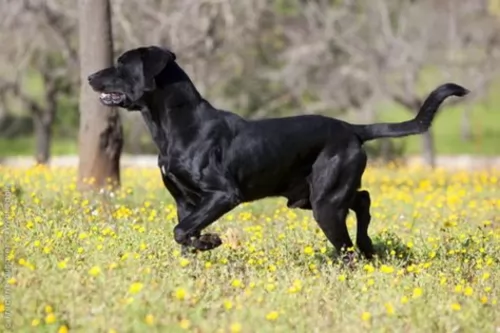 Known also as the Majorca Shepherd Dog or Ca de Bestiar, the very name Perro de Pastor Mallorquin means Shepherd dog of Mallorca.
Known also as the Majorca Shepherd Dog or Ca de Bestiar, the very name Perro de Pastor Mallorquin means Shepherd dog of Mallorca.
The dog hails from Spain and has been used as a general purpose farm dog. The diligent work of fans of the dog to encourage its development were rewarded when the dog - both short- and long haired varieties - gained recognition from the Fédération Cynologique Internationale.
The dog is really only popular in its homeland where it is appreciated for its guarding and herding abilities.
The Cao de Fila da Terceira is a medium sized molosser, recognized by his weird tail – short and twirled. In fact, the dog’s other name, Rabo Torto, actually stands for ‘twisted tail’, which is a trademark of this dog and which is thought to come from the mix of bulldog in him.
The dog’s coat is short and smooth and the color is usually fawn or yellow while other colors such as brindle, red or black are also available but less acceptable. You may also find small white markings on the chest and feet.
Standing at about 55cm, the dog is muscular and powerful with a broad head, medium sized floppy ears, wide chest and strong muzzle.
The Cao de Fila da Terceira is a good guard dog and while he doesn’t like strangers, he is a dog who is loving and devoted with his human family. See that he gets socialized and trained and he is capable of establishing a deep relationship with all members of the family, children and other pets included. He relies on his owners to provide him with warmth and communication.
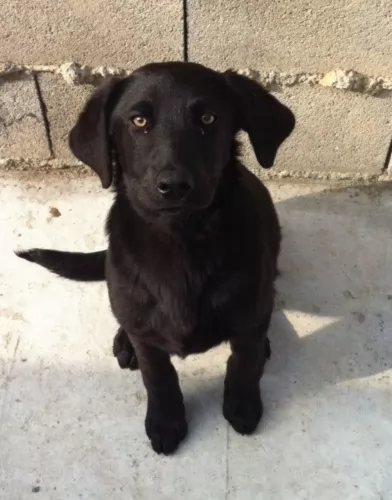 The Perro de Pastor Mallorquin is a large dog which stands between 62 and 73 cm and weighs between 35 and 40kg. Most of them are short haired, ensuring low grooming requirements for the owner. The coat is black, in fact the Fédération Cynologique Internationale says its the only color which is acceptable. He has floppy ears and the tail is long, rising when the dog is on the move.
The Perro de Pastor Mallorquin is a large dog which stands between 62 and 73 cm and weighs between 35 and 40kg. Most of them are short haired, ensuring low grooming requirements for the owner. The coat is black, in fact the Fédération Cynologique Internationale says its the only color which is acceptable. He has floppy ears and the tail is long, rising when the dog is on the move.
The Perro de Pastor Mellorquin is a dominant, independent and wilful dog that will need to be trained and socialized if he is to be obedient. He is fiercely devoted to his owner, being loving and protective. This training is actually important as the Majorca Shepherd Dog doesn't take easily to strangers and can in fact show signs of aggression when around them.
It is qualities like this that make him a good guardian and watchdog. With training and socialization he will be able to get on well with other pets in the home as well as with children who have been taught how to respect- and be kind to animals.
He is an active dog too and it is better to have such a dog in the suburbs or the countryside as opposed to living in a small city property.
If only dog owners would realize that when it comes to a dog’s characteristics, that while there are some traits inherent in a dog, essentially it’s a case of you reap what you sow with a dog. Treat your dog badly, ignore him and abuse him and you get an aggressive, volatile dog who is a threat to the very humans who created the monster in him.
The Cão de Fila da Terceira will certainly need excellent training and socialization, and when he receives plenty of loving attention from his human family he becomes an amazing, relaxed pet. He becomes patient and sweet-tempered so that you can ultimately call him guardian and friend.
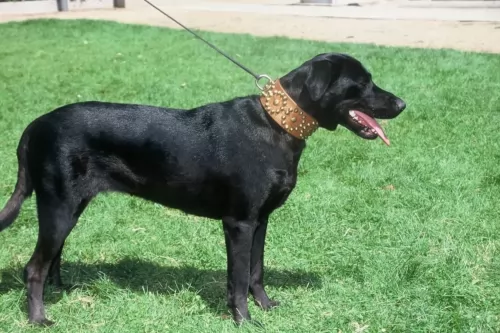 The Perro de Pastor Mallorquin is a dog known for its devotion to its owner, taking on his role as guardian and protector very seriously.
The Perro de Pastor Mallorquin is a dog known for its devotion to its owner, taking on his role as guardian and protector very seriously.
It is a courageous dog, strong willed and confident and isn't recommended as a first choice of dog for the novice dog owner, although there have been first-time dog owners who bring their dogs up correctly and have tremendous success with them.
Provide your dog with a firm consistent, kind, patient and loving home, and you can also be one of those first-time dog owners who highly recommend this dog as an awesome pet for any household.
The Cão de Fila da Terceira is a healthy dog breed, but even so, you need to be looking out for some ailments which can threaten the comfort and wellbeing of any dog.
This can often be brought about by the wrong diet. When you see your pet battling to clear out the bowels, it can often be rectified by altering your dog’s diet. Speak to your vet if it continues. Your vet may suggest adding some form of nutritious oil to your pet’s diet.
Dogs can also suffer from heart disease, especially when there is an obstruction to the flow of blood to the brain which can cause your pet to collapse. Veterinary attention must be sought without delay.
Frequent passing of water can be indicative of a kidney problem. Veterinary advice will be needed.
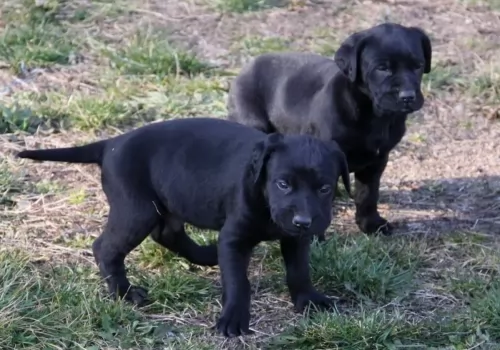 A dog can live a long, happy life when he has been looked after well. Makig sure he doesn't become obese, giving him enough exercise and loving him can ensure longevity. Your Perro de Pastor Mallorquin can live to be 13, 14 or 15 years of age, but there are always some common dog illnesses to be aware of -
A dog can live a long, happy life when he has been looked after well. Makig sure he doesn't become obese, giving him enough exercise and loving him can ensure longevity. Your Perro de Pastor Mallorquin can live to be 13, 14 or 15 years of age, but there are always some common dog illnesses to be aware of -
This is a disease of the hip where the ball and socket joint isn’t formed properly. The result is a joint that rubs as opposed to sliding smoothly. This is one of the most common skeletal diseases in dogs seen more often in large dogs. The disease can start while the dog is still young and it can lead to osteoarthritis an decreased activity.
One of the eye diseases is when the uvea of the eye becomes inflamed, creating a painful condition known as anterior uveitis or inflammation of the front of the eye.
This disease can threaten your dog’s vision. It is painful with redness of the eye, there could be a discharge too as well as excessive watery eyes. Cancer, infections and injury can all be to blame and your vet will want to examine your dog.
Companionship is important for the Cao de Fila da Terceira, and if you don’t have another dog in the home, as a pack animal, your dog will rely on you for being an active part of his life. A dog that is well treated becomes thoroughly loyal to his owner.
A balanced diet is important for health and for a shiny coat. If you’re unsure of how to feed your Terceira, speak to your veterinarian first. Your vet will know that protein for instance, is essential for your dog. The vet will also speak to you about how to feed a puppy, an adult dog, a pregnant female dog and also feeding your senior dog. Your vet will also explain the hazards of overfeeding and how raw meat also needs to be included in your pet’s diet.
Fresh, cool water is your pet’s life-blood and should be available to your dog night and day. Every dog can benefit too from taking a daily supplement rich in omega-3 fatty acid.
The grooming of your pet will depend on the breed. The Cão de Fila da Terceira has a short coat so he will be easy to maintain. Brush him twice a week to remove loose hairs.
Areas which also need checking daily are the eyes to see that there is no discharge. It is also important to inspect the ears as there should be no build-up of wax inside the ear. Toenails also need attention and should be clipped if they grow long from the pet not walking on hard surfaces.
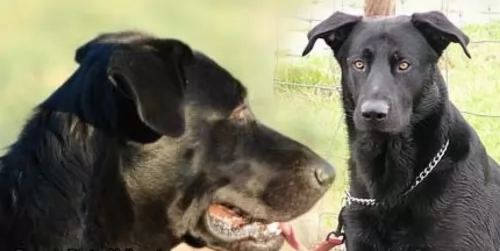 The Majorca Shepherd Dog isn't a heavy shedder but still, he will require some basic grooming such as brushing the coat twice a week to remove loose hairs and to retain his natural shine.
The Majorca Shepherd Dog isn't a heavy shedder but still, he will require some basic grooming such as brushing the coat twice a week to remove loose hairs and to retain his natural shine.
Other care and grooming routines for your pet are to check inside his mouth for dental disease as problem teeth can cause a host of diseases in the body.
Check inside his ears too and make sure they aren't red and itchy as this could be indicative of an ear infection.
Nail clipping is also important as his nails can hook onto things and rip open the flesh around the paw area.
These dogs are lively and energetic, having been used to do lots of work herding and guarding sheep. He isn't a dog to be left in the backyard day after day without human inter-action and exercise. He will require some hectic exercise every day and will love to join you with your jogging or cycling, running beside you. Take him with you on our walks and hikes.
Only the best dog food is recommended for this dog of yours. If you intend feeding your pet commercially manufactured food, make sure its the best quality ones – those with protein listed at the top of the ingredient list and with a good amount of vitamins and minerals.
Choose the food according to your dog's size, his age and his energy levels. If you're going to give your pet home-made food, keep it simple to avoid upset stomachs and vet's bills.
Boiled chicken, brown rice or pasta and cooked vegetables such as spinach, sweet potato and carrots are wonderful for a dog when added into the kibble occasionally as a tasty treat. You can also try to include some raw meat into the kibble from time to time.
Dog's just want simple, wholesome foods like this, no unpleasant surprises of spicy, 'people foods'. Never leave your pet without a supply of fresh, cool water.
Take your puppy to the vet to have his vaccines, as the canine parvo-virus (CPV) infection for instance, isn't only a very contagious viral illness that affects dogs, it can be a killer. Keep a check on your adult dog too and see that he gets to the vet at any sign of illness.